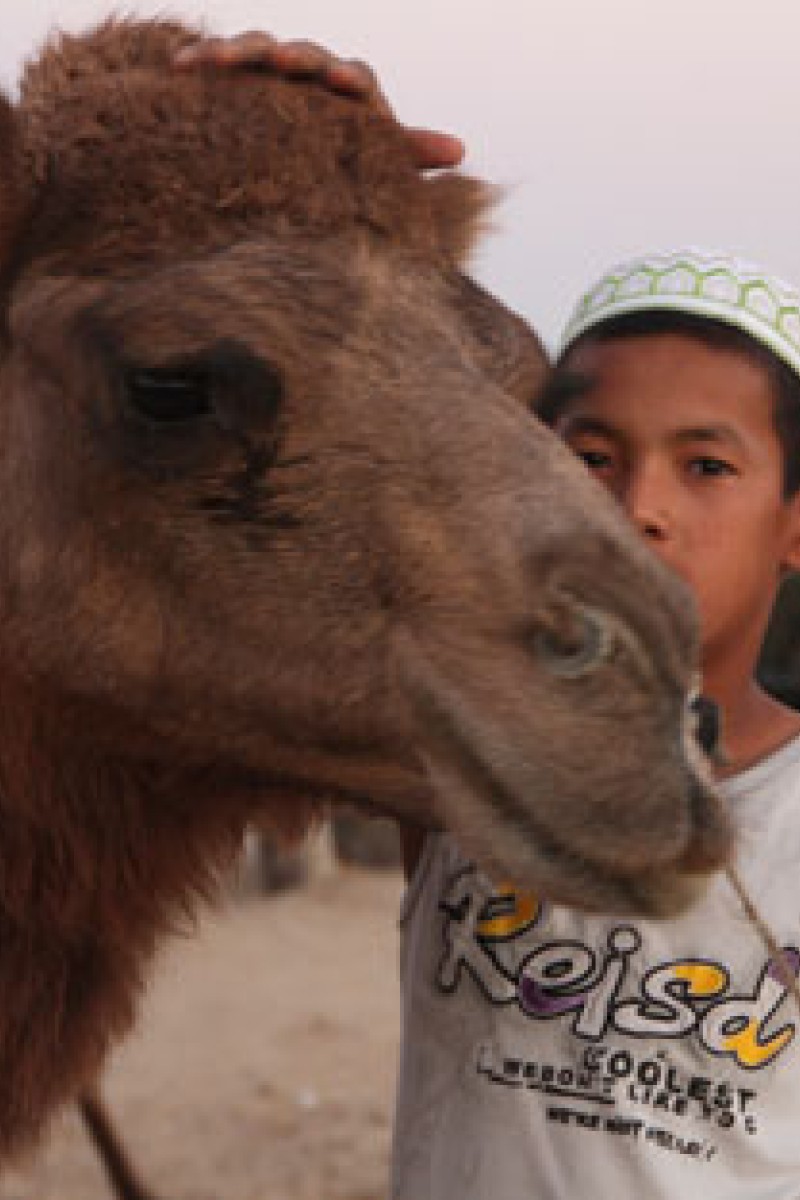
"My quest has always been to explore new horizons," says Lindstrom. "Creating this foundation has given me an excellent platform to travel, film and drive development issues forward through video screenings around the world."
On August 7, the two co-founders, joined by English journalist Philippa Young, kicked off a four-month quest to find an unexpected "unsung hero", aiming to travel to more than 15 countries including Kenya, Mauritania, Mongolia, Morocco and Kyrgyzstan. The team's goal: to find out about dairy cultures, encourage respect for camels and make people view cheese production as an art form. They plan on filming people within the camel industry, such as researchers, professors and herders and sharing their message around the world.
The filmmakers see camel cheese and its raw material - camel milk - as far more than a delicacy; it's a metaphor for many issues in modern society. "Camel milk is the new oil," Sully says. Unlike cow's milk, camel milk is rich in fat and protein, and highly nutritious. It has more vitamins and 10 times as much iron as cow's milk. Recent research even suggests it may be effective against illnesses and conditions like diabetes, autism and cancer.
What most impresses Lindstrom is that the Mongolian nomads can turn the milk into so many different products, from camel curds to cheese, through fermentation. This long tradition of camel cheese-making has the potential to provide valuable nutrition and numerous entrepreneurial opportunities for the nomads, who have gradually abandoned their nomadic lifestyle.
But the team is worried about the current situation of nomadic communities and the milk industry. In a WTYSL video, Young explains the camel population is rapidly declining due to people's preference for short-term solutions to their problems, such as not milking them or even killing their camels to sell the meat.
"The species is endangered like the Chinese panda. If we lose it, we lose the opportunity to research and utilise its milk for treating diseases. We feel this to be a tragedy," Young, 23, says.
"Camels are extraordinary creatures. They are the only species that cry as humans do when they feel compassionate."
The trip to find out more about these unusual creatures is far from being a luxury holiday. To truly experience local life, the team is choosing not stay in hotels. They have encountered hurdles with visa applications, inefficient embassies and budget limitations. The language barrier is making it difficult to communicate with the locals and translate footage for documentaries.
But despite the hardships, the team is optimistic about their bid to champion camel cheese and its unheard stories.
"The travel is hard...but we feel project is important and want to see it succeed," said Young, who is looking forward to their second leg of the trip in Morocco in mid-November.
"Our personal needs are small. Alicia doesn't eat very much and Sebastian likes sleeping on floors...
"We're not here for salaries - we do this because we have a passion for this incredible tradition of nomadic communities: the camel and cheese".
Keep up to speed with the team's exploits on their website whattookyousolong.org and find out more about the foundation's aims.
